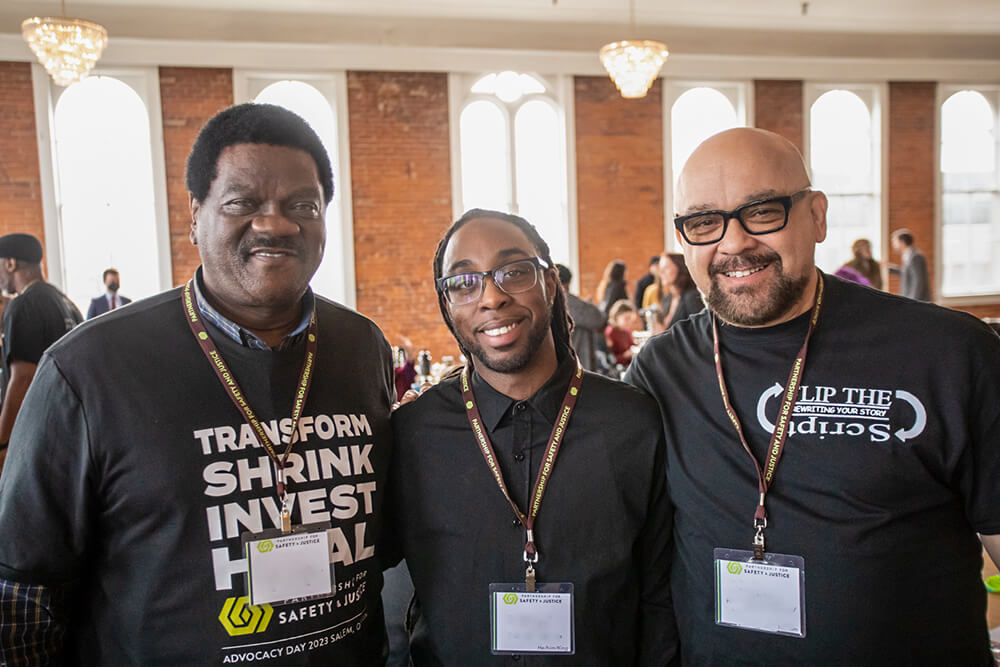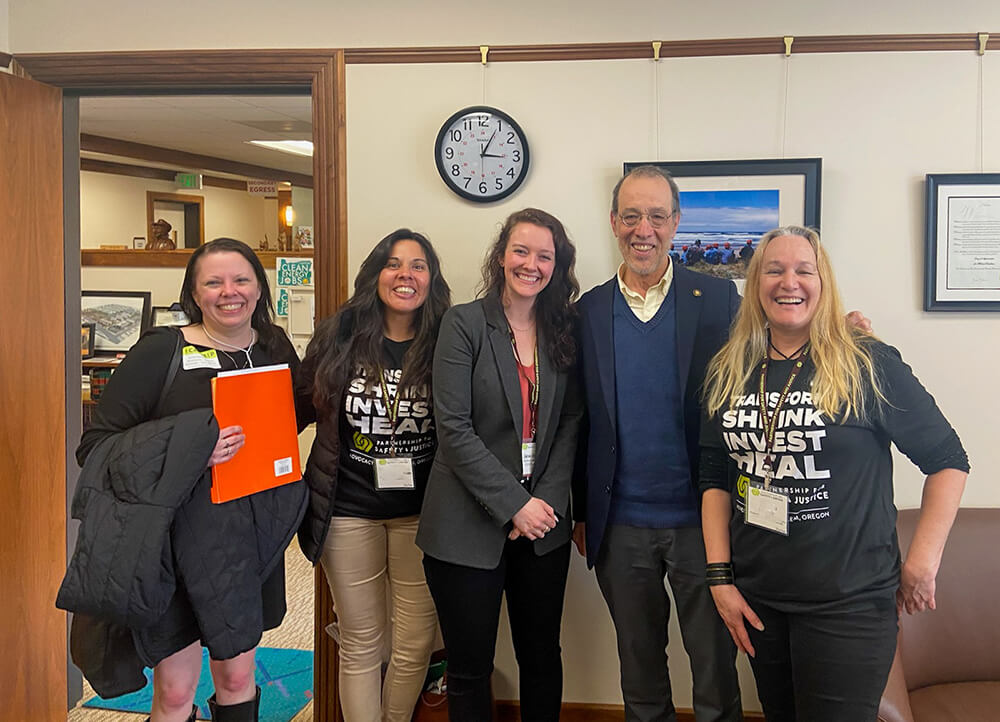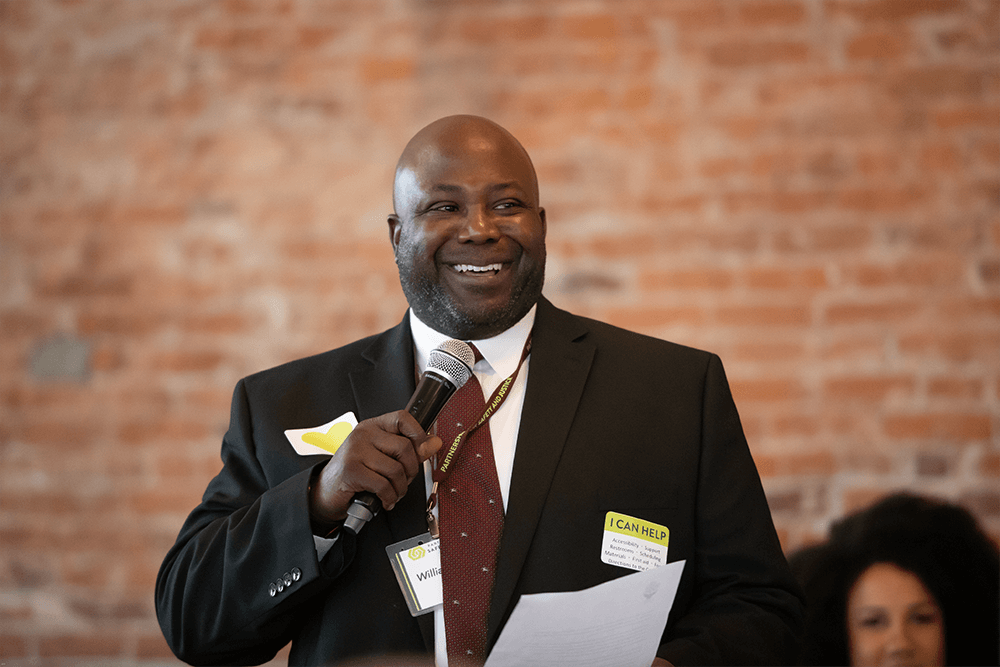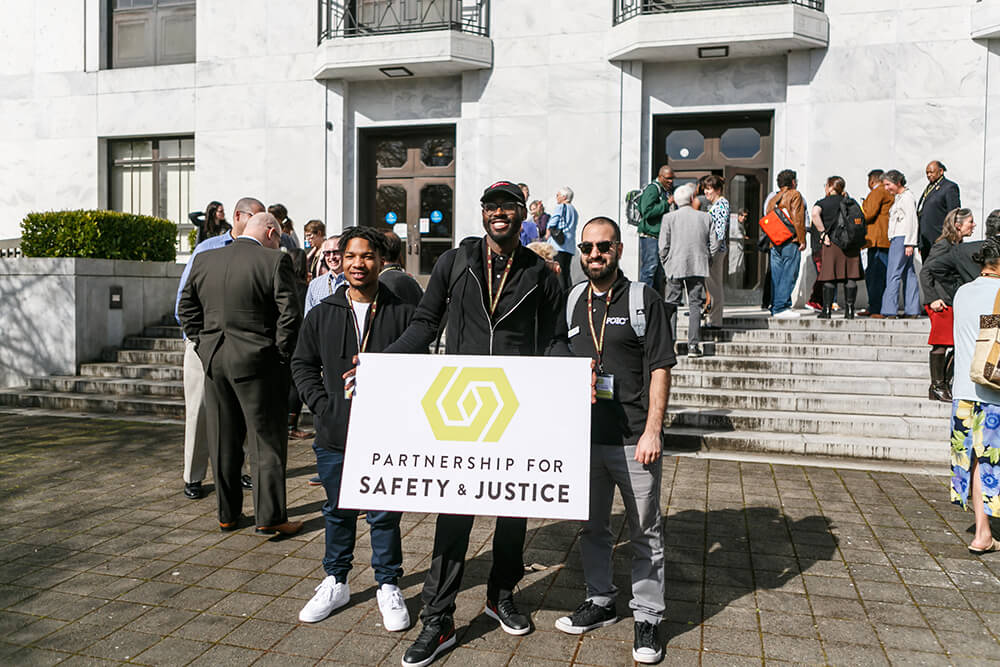Transforming Our Response to Harm with Healing
We envision a public safety system that values…
Healing over handcuffs
Oregonians deserve stable housing, addiction treatment, and mental health care. Instead of arresting and jailing people who are suffering, we fight for real solutions like housing and healing services.
Accountability for harm
Crime survivors deserve meaningful accountability — not punishment-only approaches that don’t create true community safety. We advocate for programs that prevent violence, repair harm, and help people heal.
Racial justice and equity
Black, Brown, and Indigenous people have been most harmed and least helped by the system. The solutions we advance are rooted in racial justice to ensure that all of our communities feel safe.
Crime survivors’ voices
Many victims don’t turn to the criminal justice system for help, especially Black and Brown victims whose communities are disproportionately targeted by the system. We ensure that survivors have greater access to restoration and healing.
Keeping families together
Most Oregonians who are incarcerated are parents, which causes childhood trauma that reverberates into adulthood. By investing in solutions that keep families together, we foster bonds that make our communities safer.
How We Drive Change
We’re transforming Oregon’s response to harm and violence with innovative solutions that ensure accountability, racial equity, and healing for survivors of crime, people convicted of crime, and the families of both.

Building Power
Leadership from grassroots to grasstops

Transforming the System
Advancing and implementing state and local reforms

Changing the Narrative
Stories and voices leading the way
Creating Better Outcomes for Our Communities
We’re guided by a shrink-and-invest approach to reform. The policies we advance reduce mass incarceration. And our work has invested nearly $500 million into services for crime survivors, treatment, and restoration.
Expanded and made FSAP permanent
With its permanent status, the Family Sentencing Alternative Program will now expand to include more parents, allowing them to raise their children while being accountable for harm and accessing culturally specific services if applicable.
Eliminated all community supervision fees
Oregon was the first state (with California) to eliminate all post-prison community supervision fees, regardless of when a person was convicted. Supervision fees financially bind people to the system long after the end of their sentence.
Limited pretextual stops
Oregon police officers can no longer pull drivers over for four specific infractions: a single broken headlight, a single broken taillight, a single broken brake light, or a non-functioning license plate light. The law minimizes potentially lethal interactions between drivers and law enforcement. More details about the law are here.
Created drivers’ right to refuse consent to a search
Police officers must now inform drivers of their right to refuse consent to a search when they have pulled someone over. Consent needs to be documented, either in writing or recorded. More details about the law are here.
Funded the Justice Reinvestment Initiative
Our first big reform passed in 2013, it was funded again for the fifth biennium. JRI is a state grant program that reduces prison use and redirects some savings toward victims’ services, mental health services, and housing. The approach has safely shortened sentences and invested millions of dollars in community-based programs, while also preventing two prisons from opening and closing two others.
Funded Victims’ Healing and Gun Violence Prevention
More victims of gun violence will now receive hospital crisis intervention and a range of resources that can include safety planning, housing, and substance use disorder treatment. The $4M investment continues the state’s commitment to supporting survivors of color and their families after trauma.
Expanded earned discharge on community supervision
Up to 5,000 more Oregonians became eligible to earn early discharge on their post-prison community supervision. People meeting their supervision goals can earn up to 50% of their time off. A shift away from a more punitive approach, people are now incentivized and rewarded for their success.
Dive deeper into the policies that are reforming our systems.
Join the Movement for Safety and Justice
Our newsletter keeps advocates like you informed about current policies, education opportunities, and ways you can take action.
“Partnership for Safety and Justice really opened my eyes to the ways in which our criminal justice system works and doesn’t work — the ways in which so many people affected by the criminal justice system are both survivors of crime and folks who might commit crime as well.”
Racial justice and criminal justice reform advocate
Tips for Talking about Reform
Listen to understand, not to respond.
Connect with shared values.
Share personal experiences with the issue.
Explain concerns you have with the system.
Draw connections between the problems you see and the values you share, including racial equity and second chances.
It is okay to not have all the answers.
Just questioning the status quo is powerful, too.
Don’t expect to change minds.
Sharing your perspectives can make meaningful shifts in future conversations.
Deepen your advocacy skills
Discover information and research to support your advocacy and reform work in your community.
Sign the petition
Oregonians overwhelmingly share core beliefs about community safety:
- Everyone deserves to feel safe and live a life free of harm.
- Anyone who is suffering should have what they need to heal.
- After taking responsibility for causing harm, people deserve a second chance.
Our public safety and criminal justice systems should be guided by these values. Instead the default response to crime is incarceration, punishment, and isolation from loved ones.
Our movement is transforming safety and justice for all Oregonians.

